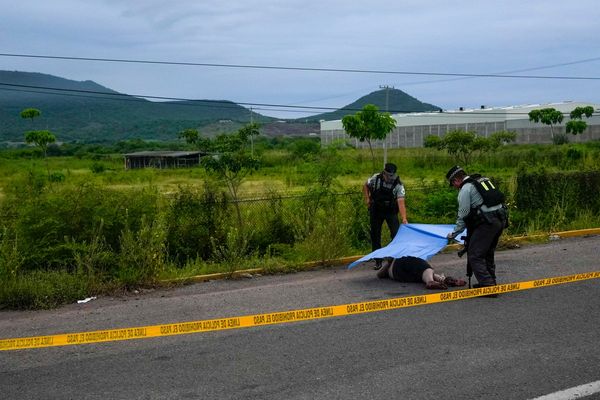
Until the nationwide lockdown imposed last month to stem the Covid-19 spread, mental conditioning for elite Indian athletes meant aligning skills to focus, to surmount the intense pressure of international competitions and win medals. Those were in the best of times. In the worsening situation they are now in, stuck indoors anguishing over cramped space that prevents their daily training routines, stress is taking a toll on them with global sports shut and resumption of action uncertain.
Mental conditioning experts acknowledge the serious situation and are tweaking their lessons that had focused on building the killer instinct, the tunnel vision to win. The priority now is to help combat anxiety and depression.
Uncertainty is gnawing at top athletes. Teenage shooting stars Manu Bhaker and Saurabh Chaudhary, for example, would have been primed for success at the Tokyo Olympics, but now must return to the drawing board after it was put off. Seasoned campaigners like India’s No.1 hockey goalkeeper PR Sreejesh, 31, have to work extra hard to keep their Olympic dreams alive.
Sports psychologists admit it is a huge test for Indian athletes. Depression and anxiety is not alien to professional sport at the global level, but is rarely discussed in India. That makes suggesting a remedy difficult for experts, who need sports stars to first shed their reticence and open up.
“In India, not enough attention is given to mental well-being,” says Noida-based Nanaki J Chadha, among a growing band of sports psychologists in India. The number of athletes consulting her has gone up since the lockdown began in late March. Among them is a shooter who is dealing with anxiety after narrowly missing the Olympic qualification mark. Many other professional sportsmen and women agonise over the financial setbacks loss of ‘employment’ has brought.
Mumbai sports psychologist Mugdha Bavare, consultant with Mumbai Cricket Association and Olympic Gold Quest (private body aiding athletes in Olympic sports), saw athletes initially welcoming the break only for the emotional upheaval to set in.
“There are athletes who are able to express it, some who are not,” she says. “Many say ‘nah, we’re doing fine, we’re taking care of everything’. Our challenge is to spot if they are fine or not, whether or not they are able to express their emotions, whether they really don’t know what they’re feeling. I’m seeing these waves, mood swings, frustrations in some.”
Most of her clients—names are withheld to protect confidentiality—had been building up for the peak season. “There is also the fear ‘if my performance goes down, I don’t know how soon I’m going to bounce back’,” Bavare says.
Coaches aren’t exempt, fretting over how to draw up fresh training plans. “They also definitely need help because they’re not working as much as usual.”
One basic routine that gets disturbed is sleep, so vital for athletes, says Maithili Bhuptani, lead sports and exercise psychologist at Mumbai’s Reliance Foundation Hospital who guides boxers, badminton players and athletes, among others.
“I would say 99 percent of them face this problem (sleep) because they are not training hard now. Without fatigue, body isn’t adapting to the indoor schedule that is not as rigorous as the outdoor activities were.”
The isolation at home adds to the anxiety. “The mind works on things like qualification, on how to achieve good performances when Olympic qualification resumes. Change in diet is another big issue due to the reduced training.
“To calm the mind, or control things that can be (controlled), I tell my clients (mostly in the 20-28 age group) to first re-set targets so that there is something to look forward to, to achieve. “Being connected with the coach or strength and conditioning expert is important; it gives a feeling of staying on the playing field.”
Visualisation is crucial too. “Shadow boxing and training in front of the mirror, and following a schedule are important. Breaking old habits is challenging, but staying indoors one has to adapt to. Athletes must set themselves micro-goals like getting ready at a particular time of the day, packing the kit and eating pre-training meals. It will keep them mentally alert, connected with the sport.”
The talented youth too face the agony uncertainty and boredom brings.
“A junior international pistol shooter is missing training as she doesn’t have her weapon and can’t do dry training. She is upset time is passing and she sits idle at home,” says Mumbai sports psychologist Amruta Karkhanis.
It’s a fight no one can afford to give up.
“This is a testing phase--our advice was not to fight it but channelise (anxiety) this time. Many are learning to cook; it would help when they travel abroad for competition,” Divya Jain, head of psychological services, Fortis Healthcare, who works with athletes attached to GoSports Foundation, says.
“Athletes are meticulous planners, and the lockdown is a novel situation,” she adds. To recalibrate and soothe nerves, she conducted a webinar for 25 GoSports athletes on March 26. The group included those who are yet to qualify for Tokyo.
“Among recommendations were to get creative in training—breaking down the schedule given space constraints at home, training in proper gear… If they normally took off on Wednesday, it must continue.”
Mugdha Bavare says: “I tell my athletes that to deliver good performances, one usually needs four aspects—skill training, mental training, fitness training and diet. There’s just one which has shut down (skill training). The other three are under their control, which can help to not drop performances entirely. That’s the positive spin on this.
“Somewhere athletes are losing that self-control; they are not used to this because they want control of any situation.”
She believes the seasoned pros will fare better as they can refer to past instances when they had tackled tough situations on the playing arena.
Gayatri Vartak, former international badminton player and sports psychologist at Samiksha Sports Private Ltd, Pune, urges athletes to be patient. “They need to go easy on themselves and their goals because they don’t know when things will return to normal.
“They are used to routines, kind of (staying) on a monotonous track. When life gets easier as in a lockdown, they don’t know what to do…”
She suggests breathing techniques. “They can do basic breathing (and) also progressive muscle relaxation (making a muscle group tense while inhaling and relaxing when exhaling).
“I did a long online session on sports psychology with archers arranged by Sports Authority of India… For a lot of them, it’s not so much about the lockdown as it is about not knowing what to do with their time. If they are told, or helped, about structuring their routine, a lot of them will be at ease.”
(Inputs by Robin Singh, Navneet Singh, Rutvick Mehta, Ajai Masand)







